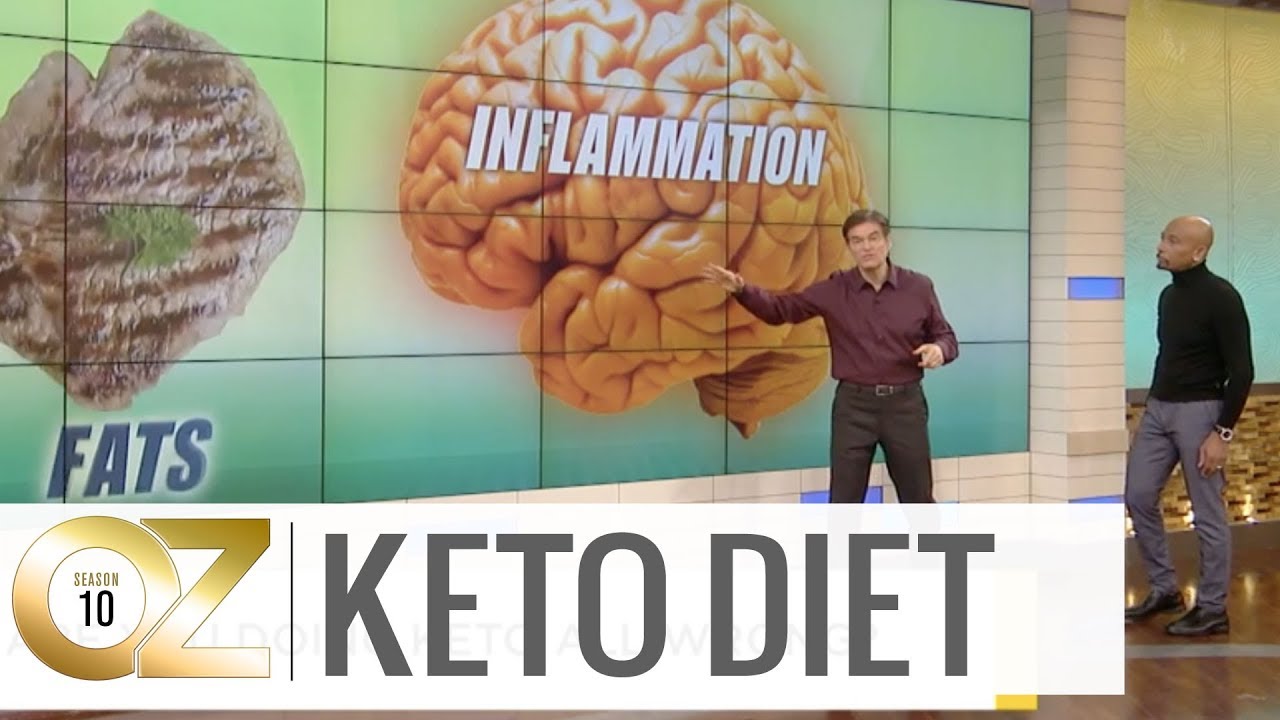The Benefits Of A Ketogenic Diet - A Game-Changer For Weight Loss And Wellness
In this article, we will explore the benefits of a ketogenic diet, how it works, and some potential drawbacks to keep in mind. Following a ketogenic diet has become a popular trend in recent years, with people choosing to adopt this low-carbohydrate, high-fat eating plan to achieve a variety of health benefits.
Author:Suleman ShahReviewer:Han JuMar 20, 202310 Shares317 Views

In this article, we will explore the benefits of a ketogenic diet, how it works, and some potential drawbacks to keep in mind.
Following a ketogenic diet has become a popular trend in recent years, with people choosing to adopt this low-carbohydrate, high-fat eating plan to achieve a variety of healthbenefits.
What Is A Ketogenic Diet?
A ketogenic diet is a low-carbohydrate, high-fat diet that is designed to put your body into a state of ketosis. Ketosis occurs when your body is starved of carbohydrates and begins to break down fat for energy, producing ketones as a byproduct.
In a standard diet, the body relies primarily on glucose (a type of sugar) for energy. When you consume a lot of carbohydrates, your body converts them into glucose, which it uses for energy.
However, when you restrict your carbohydrate intake, your body switches to burning fat for energy, which can have a range of health benefits.
The Benefits Of A Ketogenic Diet
Weight Loss
One of the main reasons people choose to follow a ketogenic diet is for weight loss. When you restrict your carbohydrate intake, your body is forced to burn fat for energy, which can result in significant weight loss.
Additionally, the high-fat content of the diet helps to keep you feeling full, reducing your overall calorie intake. Several studies have shown that following a ketogenic diet can result in significant weight loss, particularly in the first few weeks.
However, it's worth noting that some of this initial weight loss may be due to water loss rather than fat loss. Over the long term, a well-formulated ketogenic diet can help you lose weight and keep it off.
Improved Blood Sugar Control
Following a ketogenic diet can help to improve blood sugar control, particularly for people with type 2 diabetes. When you restrict your carbohydrate intake, your body produces less insulin (a hormone that helps to regulate blood sugar levels).
This can help to lower your blood sugar levels and improve insulin sensitivity. Several studies have shown that a ketogenic diet can be an effective way to manage blood sugar levels in people with type 2 diabetes.
In one study, participants who followed a ketogenic diet for 12 weeks experienced significant improvements in HbA1c (a measure of long-term blood sugar control) compared to a control group.
Improved Brain Function
Another potential benefit of a ketogenic diet is improved brain function. The brain requires a constant supply of energy to function properly, and when you restrict your carbohydrate intake, your body produces ketones, which can provide an alternative source of fuel for the brain.
Several studies have shown that following a ketogenic diet can improve cognitive function, particularly in people with neurological disorders such as epilepsy and Alzheimer's disease.
Additionally, some research suggests that a ketogenic diet may have mood-enhancing effects and could help to reduce symptoms of anxietyand depression.
Lowered Inflammation
Chronic inflammationis a risk factor for a variety of health conditions, including heart disease, cancer, and diabetes. Following a ketogenic diet can help to lower inflammation levels in the body, which may reduce the risk of these diseases.
Several studies have shown that following a ketogenic diet can help to lower markers of inflammation in the body.
For example, a study in overweight women found that following a ketogenic diet for 12 weeks resulted in significant reductions in several markers of inflammation.
Disadvantages Of Keto Diet
While there are many potential benefits to following a ketogenic diet, there are also some potential drawbacks to keep in mind. For example:
The Diet Can Be Difficult To Follow
The restrictions on carbohydrate intake can be challenging for some people, particularly those who are used to a high-carbohydrate diet.
The Diet Can Be Expensive
A ketogenic diet can be more expensive than a standard diet, as it often requires more expensive cuts of meat and other high-fat foods.
It May Cause Nutrient Deficiencies
Restricting certain food groups can lead to nutrient deficiencies if the diet is not well-planned. For example, a ketogenic diet is often low in fiber, which can lead to constipation.
It May Cause The "keto Flu"
When you first start a ketogenic diet, you may experience flu-like symptoms such as fatigue, headaches, and nausea. These symptoms usually subside after a few days or weeks, but they can be unpleasant.
It May Not Be Suitable For Everyone
A ketogenic diet may not be appropriate for people with certain medical conditions, such as pancreatitis, liver disease, or gallbladder disease.
Keto Diet For Beginners
On the ketogenic diet, you should focus on eating foods that are high in healthy fats and low in carbohydrates. Some examples of foods you can eat on the ketogenic diet include:
- Meat, fish, and poultry
- Eggs
- Nuts and seeds
- Non-starchy vegetables (such as leafy greens, broccoli, and cauliflower)
- Avocado and other high-fat fruits
- Healthy oils (such as olive oil, coconut oil, and avocado oil)
You should avoid or limit foods that are high in carbohydrates, including:
- Grains (such as bread, pasta, and rice)
- Sugars (such as candy, soda, and desserts)
- Starchy vegetables (such as potatoes and corn)
- Fruit (with the exception of small amounts of berries)

The Benefits of the Keto Diet and How it Helped Montel Williams
How Do You Get Into Ketosis?
To get into ketosis, you need to drastically reduce your carbohydrate intake and increase your fat intake. Most people aim for a daily carbohydrate intake of fewer than 50 grams per day, although some people may need to restrict their intake even further to achieve ketosis.
You should aim to get about 70% of your daily calories from healthy fats, with the remaining calories coming from protein.
In addition to changing your diet, you may also want to consider increasing your physical activity levels. Exercise can help to burn fat and promote ketosis.
People Also Ask
What Are The Benefits Of A Ketogenic Diet For Weight Loss?
A ketogenic diet can be effective for weight loss because it forces your body to burn fat for fuel instead of carbohydrates.
Can A Ketogenic Diet Improve Brain Function?
Some research suggests that a ketogenic diet may improve cognitive function and reduce symptoms of neurological disorders such as epilepsy and Alzheimer's disease.
Is A Ketogenic Diet Beneficial For People With Type 2 Diabetes?
Yes, a ketogenic diet can help improve blood sugar control, which may be particularly beneficial for people with type 2 diabetes.
Conclusion
In conclusion, a ketogenic diet can provide a range of health benefits, including weight loss, improved blood sugar control, improved brain function, and lowered inflammation levels.
However, it is important to keep in mind that the diet may not be suitable for everyone and may have some potential drawbacks. If you are interested in following a ketogenic diet, it is important to talk to your doctor or a registered dietitian to make sure it is safe and appropriate for you.
By considering the benefits of a ketogenic diet and its drawbacks, you can make an informed decision about whether a ketogenic diet is right for you.

Suleman Shah
Author
Suleman Shah is a researcher and freelance writer. As a researcher, he has worked with MNS University of Agriculture, Multan (Pakistan) and Texas A & M University (USA). He regularly writes science articles and blogs for science news website immersse.com and open access publishers OA Publishing London and Scientific Times. He loves to keep himself updated on scientific developments and convert these developments into everyday language to update the readers about the developments in the scientific era. His primary research focus is Plant sciences, and he contributed to this field by publishing his research in scientific journals and presenting his work at many Conferences.
Shah graduated from the University of Agriculture Faisalabad (Pakistan) and started his professional carrier with Jaffer Agro Services and later with the Agriculture Department of the Government of Pakistan. His research interest compelled and attracted him to proceed with his carrier in Plant sciences research. So, he started his Ph.D. in Soil Science at MNS University of Agriculture Multan (Pakistan). Later, he started working as a visiting scholar with Texas A&M University (USA).
Shah’s experience with big Open Excess publishers like Springers, Frontiers, MDPI, etc., testified to his belief in Open Access as a barrier-removing mechanism between researchers and the readers of their research. Shah believes that Open Access is revolutionizing the publication process and benefitting research in all fields.

Han Ju
Reviewer
Hello! I'm Han Ju, the heart behind World Wide Journals. My life is a unique tapestry woven from the threads of news, spirituality, and science, enriched by melodies from my guitar. Raised amidst tales of the ancient and the arcane, I developed a keen eye for the stories that truly matter. Through my work, I seek to bridge the seen with the unseen, marrying the rigor of science with the depth of spirituality.
Each article at World Wide Journals is a piece of this ongoing quest, blending analysis with personal reflection. Whether exploring quantum frontiers or strumming chords under the stars, my aim is to inspire and provoke thought, inviting you into a world where every discovery is a note in the grand symphony of existence.
Welcome aboard this journey of insight and exploration, where curiosity leads and music guides.
Latest Articles
Popular Articles
